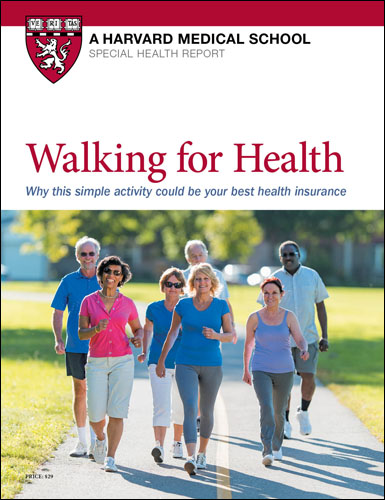Will walking faster reduce your diabetes risk?
News briefs
- Reviewed by Anthony L. Komaroff, MD, Editor in Chief, Harvard Health Letter; Editorial Advisory Board Member, Harvard Health Publishing

A study published online Nov. 28, 2023, by the British Journal of Sports Medicine suggests that picking up the pace of your daily walk — the faster, the better — is linked to a lower risk of developing diabetes. Researchers pooled the data of 10 studies from the past two decades, representing more than 508,000 adults (most of them middle-aged) from around the world. Participants were followed for three to 11 years. Compared with "casual" walking (at less than 2 mph), walking 2 mph to 3 mph (brisk walking) was associated with a 15% lower risk of diabetes, no matter how long people walked each day. Walking 3 mph to 4 mph was associated with a 24% lower diabetes risk. And going faster than 4 mph was tied to a 39% lower diabetes risk. The study was observational and doesn't prove conclusively that lively stepping keeps you from getting diabetes. But we already know that brisk walking, like any aerobic activity that works your heart and lungs, helps you control blood sugar levels, weight, and cardiovascular health, which are all important for avoiding diabetes and many other chronic diseases.
Image: © Maskot/Getty Images
About the Author

Heidi Godman, Executive Editor, Harvard Health Letter
About the Reviewer

Anthony L. Komaroff, MD, Editor in Chief, Harvard Health Letter; Editorial Advisory Board Member, Harvard Health Publishing
Disclaimer:
As a service to our readers, Harvard Health Publishing provides access to our library of archived content. Please note the date of last review or update on all articles.
No content on this site, regardless of date, should ever be used as a substitute for direct medical advice from your doctor or other qualified clinician.
















